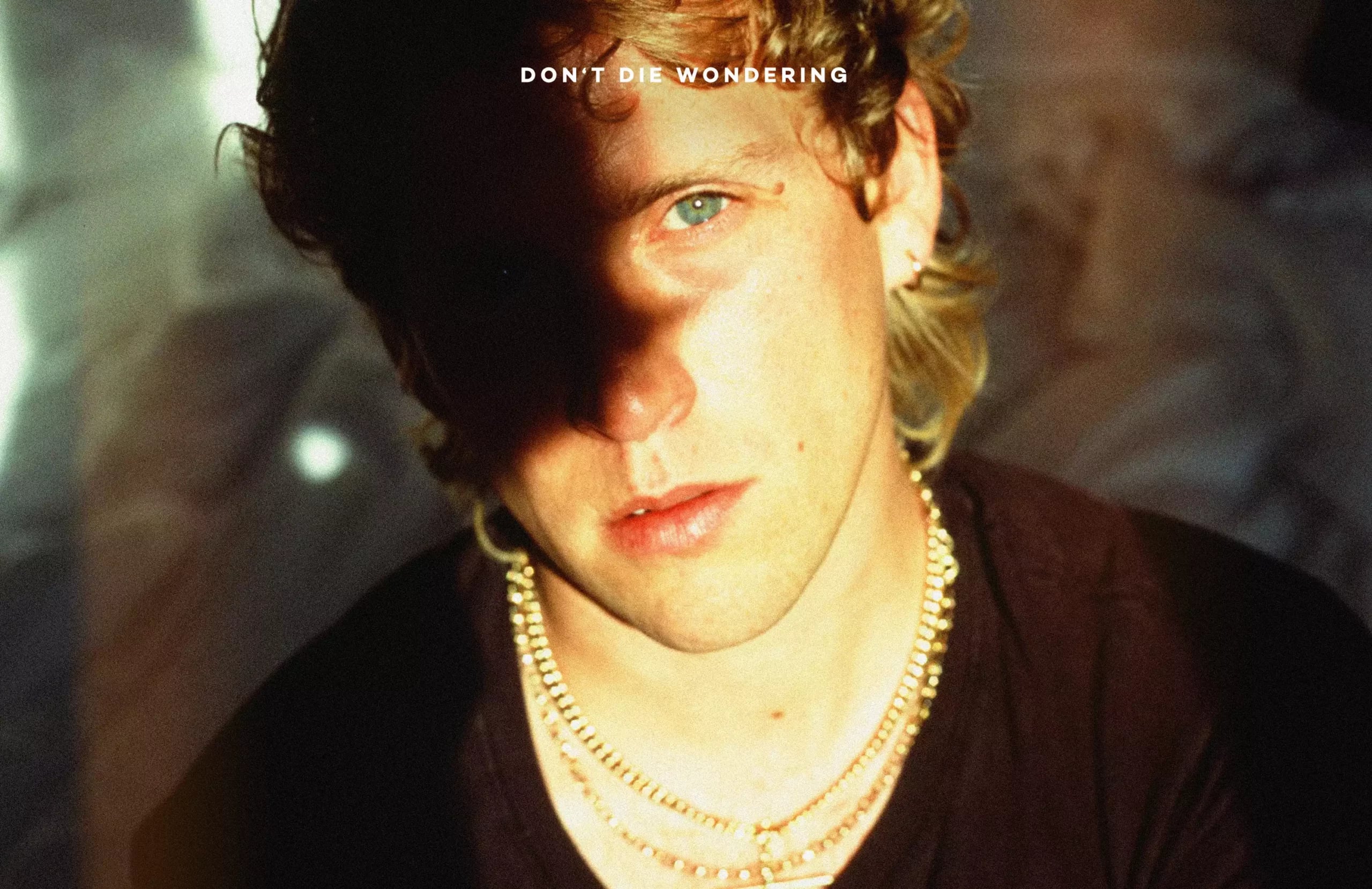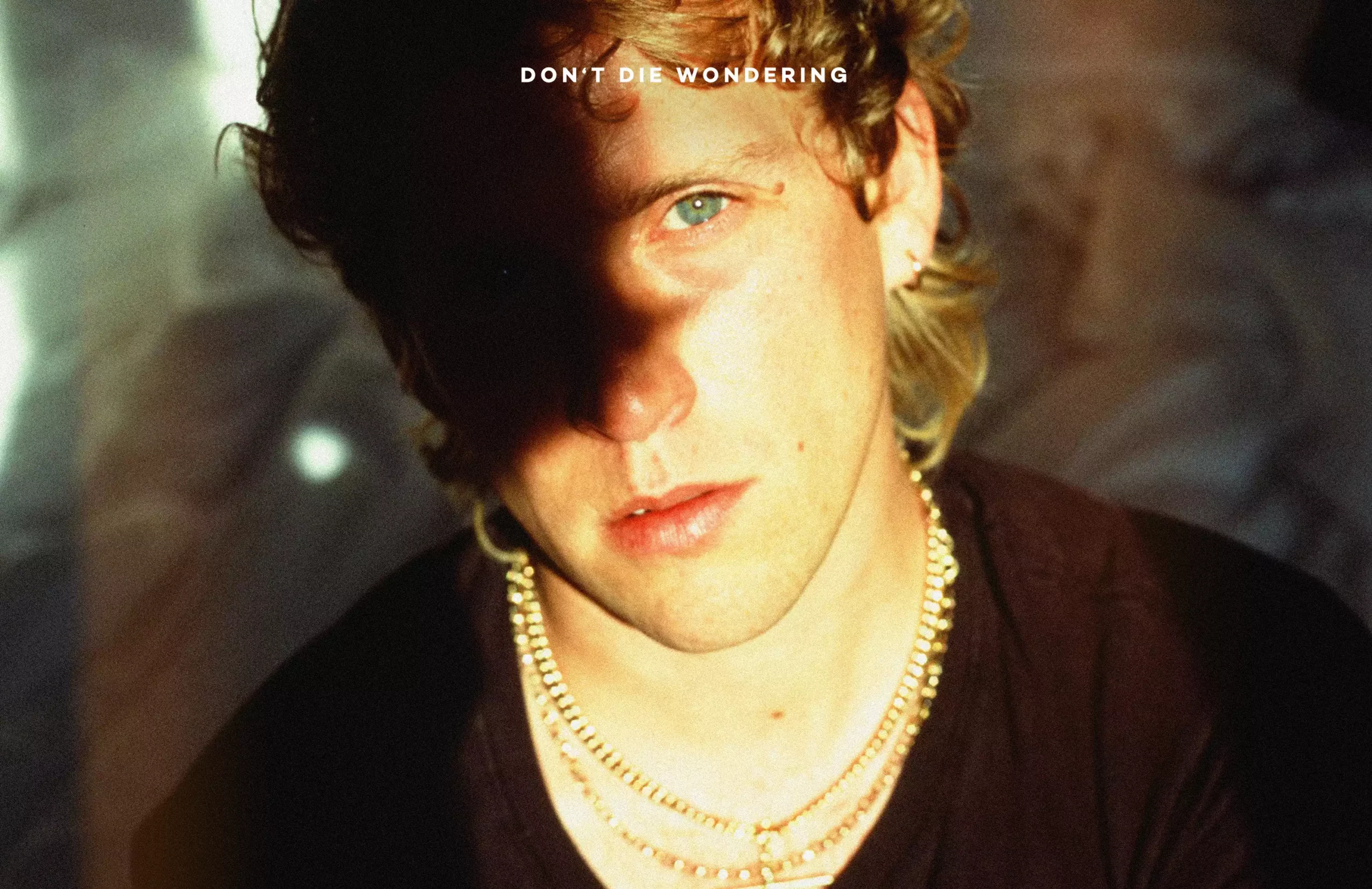Solo artist RHODES is back after a seven year hiatus with his latest cathartic album: Friends Like These.
RHODES picks up our call from his car, parked somewhere in London – a traffic jam delayed his plans in getting home to talk to me. I’m not really sure he’s entirely aware of where on earth he is, but I appreciate his consideration of making our chat on time. It attests to the artist’s caring nature. That, and his latest album, Friends Like These.

With an optimistic yet cathartic ten tracks, Friends Like These is RHODES’ second-ever album after the success of his 2015 debut, Wishes. Titles such as “Even When it Hurts” or “Good to You”, alongside the track flow, represent the past two chaotic years in the artist’s life. To the beat of a sentimental soundscape paired with moments of grandioseness, his new music becomes RHODES’ ode to authenticity, emotions and a personal favourite of mine; hope. “What drives me is the light at the end of the tunnel, or, you know, the sun rising on the horizon,” he tells me. “It’s like there’s a… a way through the darkness and I want people to hear that within the music.”
Although entirely self-taught, RHODES has had one of those childhoods where music was omnipresent. Whilst some of us woke up to the blaring sound of our iPod touch’s default alarm clocks, RHODES had his guitar-playing father to nudge him awake on the weekends. He talks about his father a lot, and fondly, his influence on who RHODES is as an artist becoming blatantly apparent. It was alongside his father, in fact, that RHODES first sang live. They had been at his father’s gig during his birthday, and his stepmom encouraged him to go up on stage and sing. He’d love it, she assured. To RHODES’ credit, that was precisely what he did.
“The next day my dad rang me and he was like, you have to do that. You’ve gotta be a singer. He was like, I’ve never heard you sing. And I… I was unemployed. I didn’t have any money. I was living on my friend’s living room floor on a mattress. I had nothing. And my dad bought me like a microphone and like an audio interface and he was like, record some songs.”
Up until then, and during his teenage years, music had been RHODES’ escape. He’d lie in bed, headphones plugged in listening to Damien Rice, Antony and The Johnsons or Jeff Buckley in the dark of his bedroom, crying and thinking about the girl he liked. How ever so coming-of-age movie of him. He remembers coming across the indie-folk band Bon Iver, the first band he remembers using sonics to express emotion. “It’s really interesting hearing someone who is clearly expressing themselves in such an emotional way that resonates with so many people, but you don’t really know what they’re actually singing about” he explains, fascinated. “It gave me insight into like being able to express myself without necessarily always being so direct with the thing that you are trying to express.”
The artist’s success, however, came with a lot of perseverance. He shocks himself in telling me music is all he has ever done, because he simply never gave up on it. Despite the challenges of pursuing a creative career path, RHODES never had a plan B, and so he kept pushing – and still pushes, by the looks of it. “Sometimes it feels like a struggle. Sometimes it feels easy,” he points out. “I still feel like I’m having to work really hard every day just to maintain where I’m at. So for me it’s just a way of life.”

Now, years later, RHODES is refining his music and striving to be more direct with his lyrics. I get the impression his years of musical hiatus were not particularly easy, and the struggles of understanding both himself and his music overlapped. “I had to try and find my way back to where I was when I did my first album.” he confesses. Adding yet another challenge to the mix, the vulnerability of releasing something such as Friends Like These strikes me as unbelievably daunting. RHODES, it seems, agrees. “You know, people talk about being your true self, right? And that’s really hard when you offer yourself to so many other people,” he confesses. “You almost invite the opinion, and you invite other people in, to basically almost guide you away from who you are.” Despite the challenges, it seems he’s managed to get to a place where he’s finally happy and confident with his output. “I’m kind of back in my body a little bit, in a cool way.”
Having experienced the music industry in two very different times, RHODES and I reflect on how things have changed in recent years. Spotify, for starters, didn’t have the seat in the music industry back in 2015 – now it’s chilling front row. “Streaming is almost like the only way of consuming music now,” RHODES points out. Whilst bands in 2015 may have disputed over letting people listen to their music for free, in 2023 not doing so is practically unthinkable. Then, of course, comes our dear social media, which RHODES seems to have mixed feelings about. “I like social media as a consumer, but as somebody who’s trying to use it as a professional tool, I find it hard. I think that’s because I’m not like really self-confident and I’m not like really outgoing. I am outgoing, but it more… more through my music.” Once again, I’m struck by how much of an armour music is to the artist.
Of the 10 tracks, one song in particular has a slightly different flavour to it. RHODES talks on how “Suffering” is about how he often deals with things in the wrong way, running away from problems (sounds familiar) and writing songs about them (not so familiar). He came to realise the he was perhaps “drinking much” and “going out too much”, the consequences of which were affecting the people he loved the most. Realising he’d upset people he cared about pushed him into a further depression RHODES describes as selfish. All this thought went behind the song, which carries a mournful groove with its lyrics and tempo.

There’s a lot of excitement surrounding the release of Friends Like These, and part of this thrill is likely to come from the artist’s upcoming tours around the globe. Having performed in both intimate and larger venues, I can’t help but ask if he has a preference for one. He talks about the blinding lights of huge stages, making the crowd disappear in their inherent darkness, and contrasts it to the familiar nature of being at a touching distance to one’s audience. He describes it as sharing a moment with someone, and many moments are to be shared in the artist’s upcoming European tour, this February. RHODES is buzzing about it. “We’re gonna make sure the rooms feel really nice and we’re gonna make sure that everyone feels really welcome and that we’re sharing, um, sharing the moment together,” he says. “and I don’t want anyone to feel like they’re just like, at a gig. I want… I want it to feel like an experience.”
We end our chat on a very random question that has been bugging me throughout. Ever since I came across the cover for Friends Like These, which features a tattooed arm, I have been wondering if the tattoo is real. He lifts his sleeve up and shows me – it is. RHODES explains to me that he’s both the kind of person who wants their tattoos to have meaning and who relish in the spontaneity of having something drawn on their body.
As proof, he proceeds to show me a few more. One’s a bird on his arm, which he got tattooed in East London by this guy drinking a beer and smoking.
“I was like, oh my god, this is not hygienic. But um, the tattoo’s still there.”


